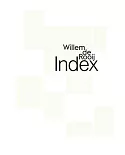This opulently illustrated book reveals how Alfred Stieglitz's search for a pure, essential "woman in art" led him to several women before his vision found ultimate expression in Georgia
O'Keeffe, whom Stieglitz portrayed as the shining, liberated feminine figure of his movement. Modernism and the Feminine Voice explores a group of extraordinary women who developed their
voices through an affiliation with the Stieglitz circle--Gertrude K簿聶翻sebier, Pamela Colman Smith, Anne Brigman, and Katharine Nash Rhoades--and shows how these artists helped define the woman
modernist through their lives and their individual photographs and paintings. Profoundly revising Stieglitz's story of the woman modernist as embodied in the person and imagery of Georgia
O'Keeffe, this pioneering book demonstrates that O'Keeffe was but one voice among several who deserve recognition as the vanguard of American modernism. Kathleen Pyne adds fascinating but
overlooked material to the history of modernism in New York with this book, which accompanies a major exhibition of the artists' works.
In contrast to previous views of O'Keeffe's self-identity as that of either a forceful, hard-working professional or a strong, erotically charged woman, Pyne posits a new theory, that O'Keeffe
had a secret self-identity that was indebted to Stieglitz's notion of the feminine voice as intuitive and childlike yet resistant to his eroticizing. While Stieglitz succeeded in canonizing
O'Keeffe as the lone woman artist of modernism in New York, he based his image of O'Keeffe as the ideal woman on the contributions of the earlier women photographers and painters explored here.
With abundant illustrations and detailed discussions of each artist's work, this engrossing book argues convincingly that O'Keeffe was not the only woman artist in the Stieglitz circle worthy
of our contemplation. This opulently illustrated book reveals how Alfred Stieglitz's search for a pure, essential "woman in art" led him to several women before his vision found ultimate
expression in Georgia O'Keeffe, whom Stieglitz portrayed as the shining, liberated feminine figure of his movement. Modernism and the Feminine Voice explores a group of extraordinary
women who developed their voices through an affiliation with the Stieglitz circle--Gertrude K簿聶翻sebier, Pamela Colman Smith, Anne Brigman, and Katharine Nash Rhoades--and shows how these
artists helped define the woman modernist through their lives and their individual photographs and paintings. Profoundly revising Stieglitz's story of the woman modernist as embodied in the
person and imagery of Georgia O'Keeffe, this pioneering book demonstrates that O'Keeffe was but one voice among several who deserve recognition as the vanguard of American modernism. Kathleen
Pyne adds fascinating but overlooked material to the history of modernism in New York with this book, which accompanies a major exhibition of the artists' works.
In contrast to previous views of O'Keeffe's self-identity as that of either a forceful, hard-working professional or a strong, erotically charged woman, Pyne posits a new theory, that O'Keeffe
had a secret self-identity that was indebted to Stieglitz's notion of the feminine voice as intuitive and childlike yet resistant to his eroticizing. While Stieglitz succeeded in canonizing
O'Keeffe as the lone woman artist of modernism in New York, he based his image of O'Keeffe as the ideal woman on the contributions of the earlier women photographers and painters explored here.
With abundant illustrations and detailed discussions of each artist's work, this engrossing book argues convincingly that O'Keeffe was not the only woman artist in the Stieglitz circle worthy
of our contemplation.





















